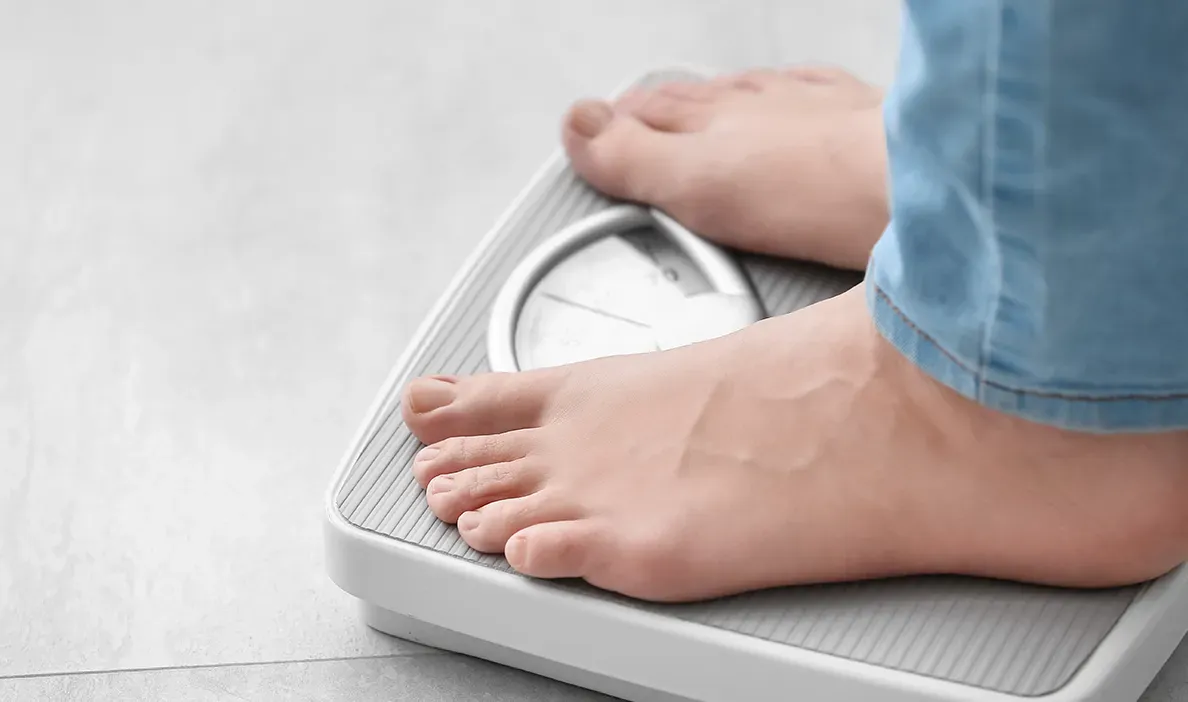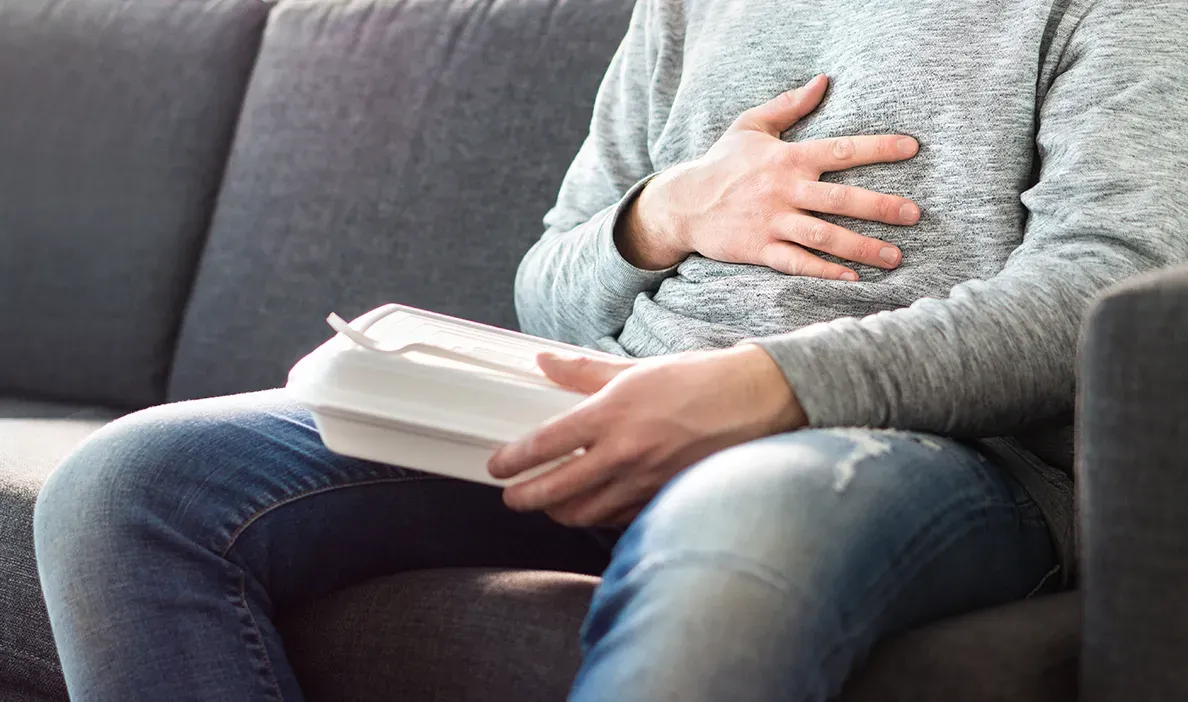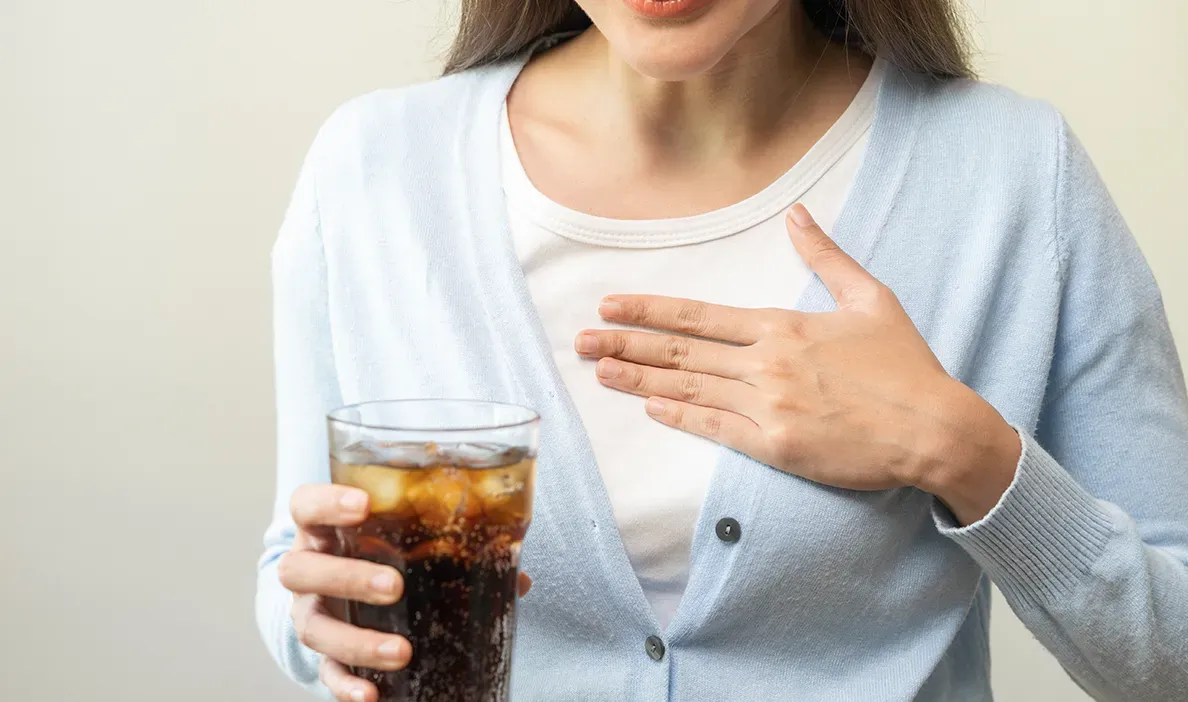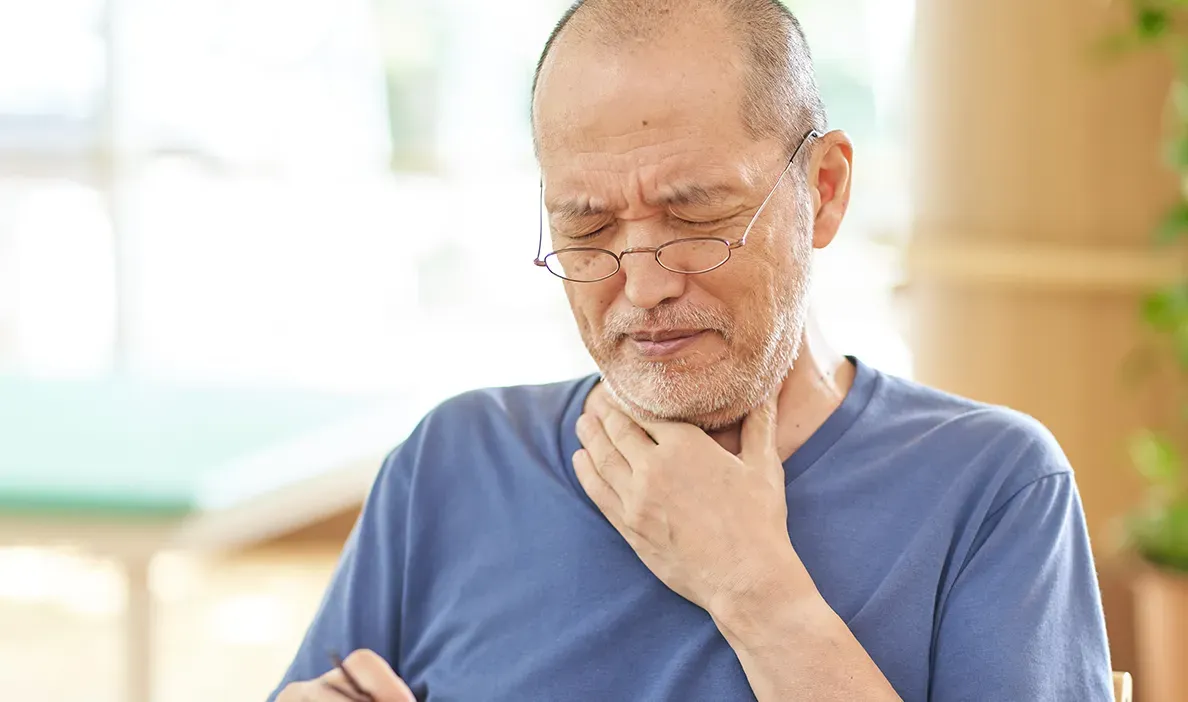Many people living with cancer lose weight without trying to. This may be because of appetite changes, which might make people less interested in food. Or it may be because the cancer makes it difficult to eat food and take in the nutrients it contains.1
You could be eating similar amounts as before but still be losing weight. This may be because having cancer and undergoing treatment means the body needs more energy than it used to.2
Losing weight can make you feel tired and weak. It can also make it harder to cope with cancer treatment and any side effects that come with it.2,3 If you’re losing a lot of weight, it means you’re probably losing fat and muscle. This is known as cancer cachexia and it affects around half of all people diagnosed with cancer.2,4
To understand how to tackle weight loss and regain muscle, it’s important to know about some of the key nutrients that our bodies need. These are fats, carbohydrates and proteins.5
Fats and carbohydrates provide the body with energy.5 Generally, when we are active and burn more energy than we take on, we lose weight. And when we take on more energy than we need, we gain weight.6
Proteins provide the body with some energy but can be better thought of as building blocks for our body. They are important for helping the cells (including muscles) in our body to grow and repair themselves.5
If you are worried about weight you’ve lost or are currently losing, then check out our tips below:
Focus on high energy foods
If you don’t feel hungry or have started to feel full quite quickly, or perhaps you are feeling sick due to your treatment, then it can be difficult to eat more food. You might prefer to focus on higher energy foods so you can increase your calorie intake without having to increase the amount of food you’re eating.7
Plan meals in advance (and get inspiration from others!)
There are lots of places online where you can find trustworthy information about nutrition. Macmillan has pulled together a useful list of breakfast, lunch and dinner ideas that are full of energy and protein.7,8
Think about ‘boosting’ your food
Sometimes you don’t have to make huge changes to make a difference. For example, you can add things to meals you’re already planning to have, to increase the energy and protein they contain. For example:1
- If you have porridge for breakfast, you might want to sprinkle some nuts, seeds or dried fruit over the top
- If you are having a sandwich, you might want to add a layer of spread – something like cream cheese or hummus for a savoury sandwich, or peanut butter if it’s a sweet sandwich
- If you are making a soup or warm dish like a casserole, you could add more oil when cooking, or serve it with a side bread or potatoes
Snack when you need to
It could be that big meals are a problem, or you don’t always have the energy to make a nutritious meal, and instead you’d prefer to have smaller meals and ready-to-eat food. Keeping snacks handy is a good way to ensure you can eat something when you feel like it. Some easy-to-grab ideas include:8,9
- Crackers – which can be topped with cheese, peanut butter, or any spread of your choice
- Biscuits, cakes or fruit loaf
- Nuts – try to go for unsalted ones, if possible
- Canned or dried fruit – can be a quick and tasty snack
Try to be active
This might sound like a strange tip if you are losing weight and perhaps feeling low on energy, but some mild exercise could help you increase your appetite. You might decide to go for a short walk or do some housework, for example. As well as potentially increasing your appetite, activity means you’re using your muscles which helps them to get stronger.1,7
Think about taking supplements
If you are still struggling to take on board the food and nutrients you need, then you might be interested in food supplements. These can add extra energy and/or protein to your diet, and can come in the form of soups, drinks, powders and puddings.7
If there are any specific reasons for your weight loss – such as side effects of treatment – feel free to check out our other ‘Living Well’ pages. We recommend taking a look at the ‘Difficulty eating and digesting food’ or ‘Coping with mouth symptoms’ pages.
We hope some of these tips help you to feel stronger and more energised. But if you are still worried about weight loss, then it’s important to speak to your healthcare team. They will be able to provide support specific to you.7
References
- World Cancer Research Fund. Weight loss. Available from: https://www.wcrf.org/living-well/living-with-cancer/your-questions-answered/weight-loss/ [Accessed June 2025]
- American Cancer Society. Weight changes. Available from: https://www.cancer.org/cancer/managing-cancer/side-effects/eating-problems/weight-changes.html [Accessed June 2025]
- Maggie’s. Weight changes and cancer. Available from: https://www.maggies.org/cancer-support/managing-symptoms-and-side-effects/weight-changes-and-cancer/ [Accessed June 2025]
- Cleveland Clinic. Cancer cachexia. Available from: https://my.clevelandclinic.org/health/diseases/cancer-cachexia [Accessed June 2025]
- Healthline. 6 essential nutrients and why your body needs them. Available from: https://www.healthline.com/health/food-nutrition/six-essential-nutrients [Accessed June 2025]
- MayoClinic. Counting calories: Get back to weight-loss basics. Available from: https://www.mayoclinic.org/healthy-lifestyle/weight-loss/in-depth/calories/art-20048065 [Accessed June 2025]
- Macmillan. Building-up diet. Available from: https://www.macmillan.org.uk/cancer-information-and-support/impacts-of-cancer/building-up-diet [Accessed June 2025]
- Macmillan. Meal ideas and shopping for the building-up diet. Available from: https://www.macmillan.org.uk/cancer-information-and-support/impacts-of-cancer/building-up-diet/meal-ideas-shopping-list [Accessed June 2025]
- MayoClinic. No appetite? How to get nutrition during cancer treatment. Available from: https://www.mayoclinic.org/diseases-conditions/cancer/in-depth/cancer/art-20045046 [Accessed June 2025]






